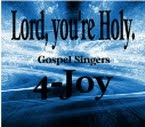I just finished an excellent book about the lives of three young women during the WWII era. The book raised an issue with which writers of historical fiction have to wrestle. The issue involves dialogue and the presentation of details that will make the story believable. James A. Michener discussed this once in a magazine interview after several history writers borrowed some ‘facts’ from Michener’s books in the belief that they were accurate. When the reporter complained to Michener that his fictionalized accounts were having a diverse effect on real history, he defended his position.
‘You have to be inaccurate in order to be accurate on occasions,’ he explained. An example he used concerned the wardrobe of the average young woman during the mid eighteen hundreds. Unless she was extremely wealthy, she wouldn’t be likely to own more than two nice dresses. Michener explained that an author was required to fudge somewhat on these ‘facts,’ or he/she would present an inaccurate picture of the person’s social status. Today’s readers, with a wardrobe that would fill a closet to overflowing, would not identify with a Scarlett O’Hara who was dressed in drab clothes or a Lancelot who carried a rusty sword.
This raises an interesting point regarding problems with the WWII book I mentioned above. Language evolves rather quickly and each generation invents their own sound bytes and catch phrases. Whenever you leave a convenience store, you are asked to ‘have a nice day.’ Or if the young lady waiting on you is really with it, she might want you to ‘have a blessed day.’ If you spend some time around the younger generation, you are likely to hear WHAT-ehv-errr, accompanied by an eye roll or two. There is also a problem with exasperation, which will evoke the word, Fine! accompanied by a lot of lateral lip movement.
So my question is this: Does words or phrases like Tiger Blood® (recently trademarked by Charlie Sheen), WHAT-ehv-errr, or Fine have a legitimate place in period fiction? Or to put it another way, is departing too much from today’s vernacular for the sake of accuracy a good idea? What do you think?
Subscribe to:
Post Comments (Atom)



















1 comment:
Hi, Joe,
Dialogue for historical fiction is a problem. I did a tremendous amount of research for my Regency romance TEA LEAVES AND TAROT CARDS. I wanted to get the dialogue just right and thought I had, even got compliments from the top Regency writers who read the novel for me well before publication, made a few small corrections and complimented the accuracy. The result? Criticism from the Library Journal reviewer who claimed the dialogue sounded stiff and unnatural to her. I believe she would have preferred dialogue that was more modern and less authentic. It's definitely easier to write modern novels!
Post a Comment